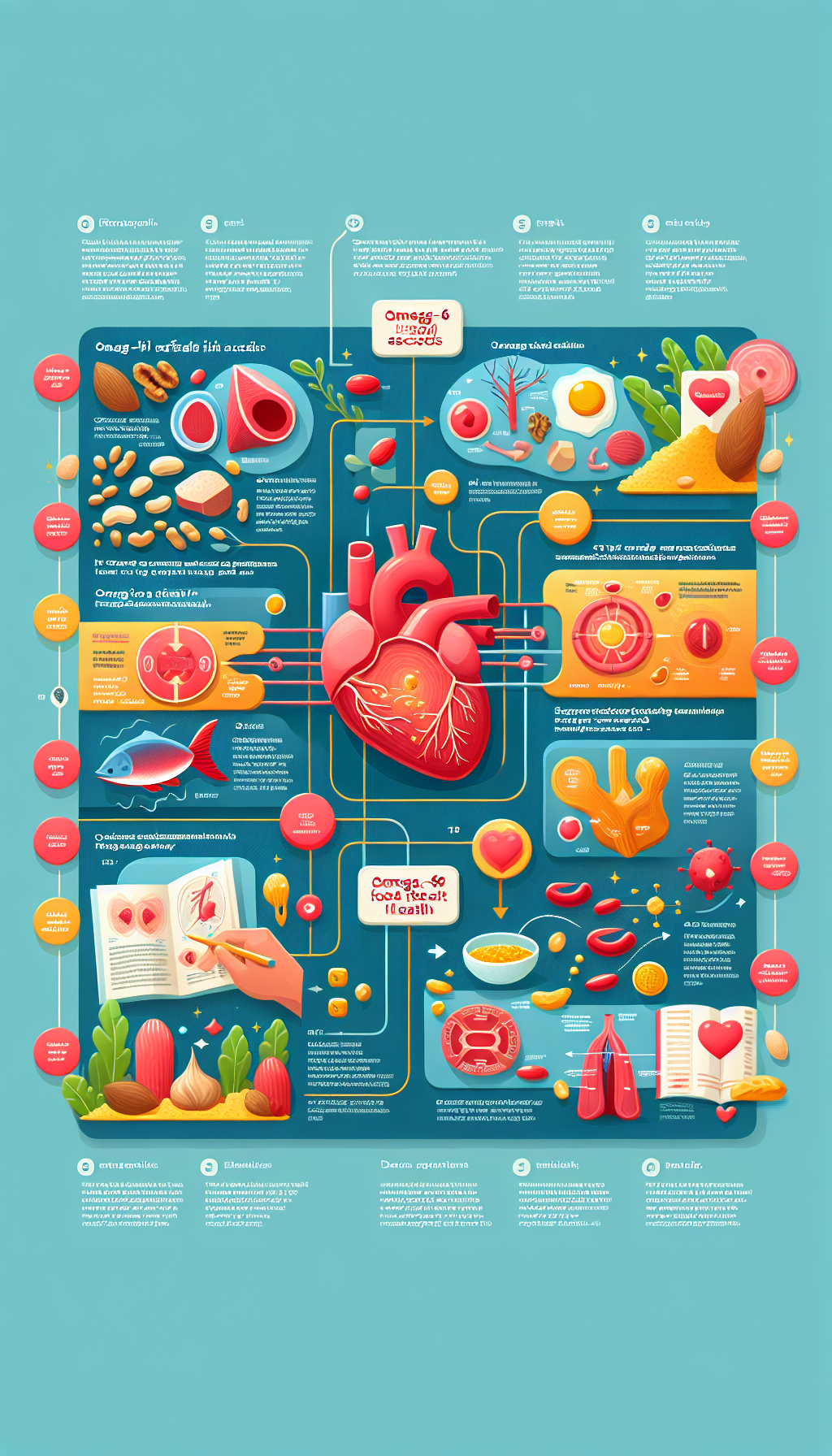Omega-6 fatty acids are often overshadowed by their well-publicized cousins, the Omega-3s, but they too play a pivotal role in maintaining a healthy heart. Understanding the complex interplay between these fatty acids and cardiovascular health can empower individuals to make informed dietary choices for the betterment of their health.
The Significance of Omega-6 Fatty Acids
Omega-6 fatty acids, primarily found in plant oils such as sunflower, safflower, and corn oil, are considered essential fatty acids. This means that our bodies cannot synthesize them; they must be ingested through our diet. Omega-6 fatty acids are crucial for brain function and the growth and development of the body. However, their most significant influence may lie in their impact on heart health.
Balancing the Omega-6 to Omega-3 Ratio
One of the most crucial factors in the dietary intake of Omega-6 fatty acids concerns the balance between Omega-6 and Omega-3 fatty acids. Research suggests that these two types of fatty acids compete for the same enzymes for their metabolism, which implies that the balance between them can affect health outcomes. For optimal cardiovascular health, many experts recommend a dietary ratio of Omega-6 to Omega-3 fatty acids that ranges from 2:1 to 4:1. [A closer look at the importance of this balance can be explored on AVIX Health’s dedicated Cardiovascular Health page.]
Inflammation and Heart Disease
Chronic inflammation is a known risk factor for many forms of heart disease. Some Omega-6 fatty acids, such as arachidonic acid (AA), can be metabolized into inflammatory compounds. On the other hand, Gamma-linolenic acid (GLA), another Omega-6, may have anti-inflammatory properties. This duality underscores the need for a balanced intake of Omega-6 fatty acids to manage inflammation and support heart health.
Clinical Evidence on Omega-6 Fatty Acids and Heart Health
Evidence from numerous studies points to a link between Omega-6 fatty acid intake and cardiovascular outcomes. One meta-analysis of randomized controlled trials found that replacing saturated fats with Omega-6-rich polyunsaturated fats without changing the Omega-6/Omega-3 ratio led to a significant reduction in the risk of coronary heart disease.
Moreover, linoleic acid (LA), the most abundant Omega-6 fatty acid in the diet, has been associated with lower LDL cholesterol levels and improved insulin sensitivity, both of which are protective against heart disease. Specialized resources on the effects of dietary fats on lipoprotein metabolism, such as the American Journal of Clinical Nutrition, provide deeper insights into these mechanisms.
Dietary Sources and Recommendations
To harness the cardiovascular benefits of Omega-6 fatty acids, incorporating nuts, seeds, and plant-based oils into one’s diet is recommended. These include:
- Sunflower, corn, soybean, and safflower oils
- Walnuts
- Sunflower seeds
- Pumpkin seeds
- Tofu
It’s important to consider the quality of these food sources, opting for cold-pressed or unrefined oils and raw nuts and seeds when possible to maximize nutrient retention.
The Controversy Surrounding Omega-6 Fatty Acids
Despite the positive aspects of Omega-6 fatty acids, there’s ongoing debate among health professionals about their role in heart health. Some studies suggest that a high intake of Omega-6 fatty acids may exacerbate inflammation if not balanced with Omega-3 fatty acids, potentially increasing the risk of heart disease. The complexity of the body’s response to these fats necessitates further research to fully understand their health impacts.
Integrating Omega-6 Fatty Acids into a Heart-Healthy Lifestyle
While focusing on Omega-6 fatty acids is important, it’s equally crucial to consider their role within the broader context of a heart-healthy lifestyle. This includes regular physical activity, stress management, and other dietary considerations. For example, the benefits of regular echocardiograms in heart disease management, the relevance of antioxidants found in Strategies to Enhance Cardiac Recovery Post-Surgery, and Understanding the Effects of Statin Therapy on the Heart are all additional factors that contribute to a holistic approach to heart health.
Conclusion
Omega-6 fatty acids are a critical component of heart health, but they must be consumed judiciously and in proper balance with Omega-3 fatty acids to mitigate the risk of inflammation and other potential adverse effects. By making informed choices about dietary fat sources and maintaining a lifestyle conducive to heart health, individuals can positively influence their cardiovascular system’s functioning.
In conclusion, while the path to optimal heart health is multifaceted, understanding and incorporating Omega-6 fatty acids into your diet is a step in the right direction. It’s not just about consuming these fats but doing so in a way that is balanced and mindful of the body’s complex needs. As with any dietary change, it’s advisable to consult with healthcare professionals, such as dietitians and cardiologists, to tailor an approach that’s best for an individual’s unique health profile.



